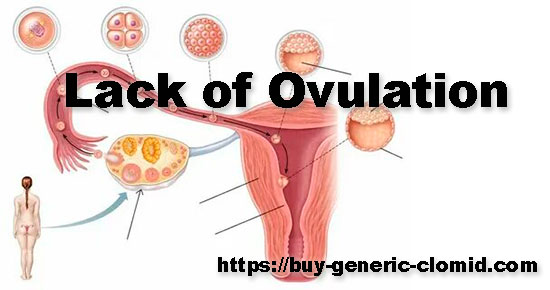If pregnancy does not occur, then you should think about the lack of ovulation. Ovulation refers to the natural physiological processes that occur in the female body. It denotes the natural ability to procreate. During this period, a woman becomes pregnant, because the egg is secreted. This process falls in the middle of the menstrual period. However, if pregnancy does not occur, then it is worth considering, perhaps there is no ovulation, why? What are the reasons?
Important! This article is posted exclusively for educational purposes, the information cannot be used for self-diagnosis and self-treatment. To make a diagnosis and properly prescribe treatment, you should consult a doctor.
Ovulation may not be due to physiological reasons. For example, it is believed that if a girl has her period, then she can get pregnant. Of course, it can, but the probability of this is very low. Stable functioning of the reproductive system, regulation of hormone secretion are not established immediately, so teenage girls have irregular menstruation. Studies show that many menstrual cycles are anovulatory. This is due to the fact that the follicles do not mature normally, which improves over time.
Anovulation may also occur during pregnancy. The hormonal background of a woman is changed, there is no cyclic rhythmic release of hormones (read more here). And during lactation, prolactin increases in the blood, which also prevents ovulation, as with pathological hyperprolactinemia.
Lack of ovulation: The presence of diseases
Most often, the lack of ovulation is caused by a number of serious gynecological and endocrine diseases. Here are the main reasons why there is no ovulation:
- polycystic ovary syndrome (PCOS);
- reduced estradiol content;
- excessively high level of follicle-stimulating (FSH);
- infantilism;
- high degree of obesity;
- exhaustion (anorexia);
- hyperprolactinemia;
- violation of pituitary function;
- diseases of the thyroid gland.
If you examine patients with such diseases, you can understand why they do not ovulate. They usually have hormonal disorders that affect all stages of egg development.
Endocrine diseases play a special role. The fact is that the regulation of the secretion of certain hormones is interdependent. Therefore, women with diabetes mellitus, thyroid diseases often have problems with conception.
For example, such a pathology as insulin resistance, associated with a violation of the transfer of sugar into the cell, can cause anovulation. If glucose intake is disrupted, insulin production in the pancreas increases. The effect of insulin resistance on conception is still being studied, but it has been revealed that women with a change in the NOME index, which determines the level of disorders, more often develop polycystic ovary syndrome. It also occurs in type 2 diabetes mellitus.
Insulin resistance can be physiological and pathological in nature. Physiological is observed even in adolescent girls and if you do not adhere to proper nutrition, do not follow the regime, it can lead to the development of diabetes, PCOS and anovulation. Problems with conception can occur, even if a woman just got sick before ovulation, this can also negatively affect the process. After all, at this moment the body is involved in the fight against infection, the organs are working in stress mode, hormone production is changing, that’s the reason why ovulation is delayed and it is not. It may come later or not appear at all.
Chronic stress
Constant and increased stress is one of the essential reasons why there is no ovulation. Nervous overstrain, mental overload and chronic stress are among the most frequent causes of a delay in this process. Excessive shock can become a locking mechanism of ovulation. Moreover, with its complete absence for a very long period.

Regulation of the reproductive function of the body is called neurohumoral. This suggests that the brain controls the secretion of hormonal substances. Stress, overstrain create pathological foci in the brain tissue that affect the production of gonadotropins. Therefore, the treatment of this type of disorders can be difficult and sometimes lengthy. If external factors of influence are not eliminated in a timely manner, the process may deepen and then not only pregnancy will not occur, but also the development of diseases of other organs is possible.
Is it possible to get pregnant without ovulation?
If you do lack of ovulation, then in no case should you lose heart, but you should go to the doctor. Perhaps here, in the absence of egg maturation, there is a serious pathology that needs to be urgently treated in order to observe how the tummy grows in the near future. Most likely, the doctor will talk about hormonal failure. To identify the cause of the absence of ovulation, it is recommended to first pass the necessary tests and undergo an ultrasound examination. And this act will be the most correct, because the doctor, based on the medical results, will tell you in detail how to get pregnant without ovulation in your particular case.
And yet, what does modern medicine offer us? Is it possible to get pregnant without ovulation? If the cause of the pathological condition does not lie in serious anatomical disorders, then hormone therapy is recommended, which will provoke the proper maturation of the egg. One of the treatment options is taking medications based on progesterone (for example, Clomid).
So, if you are not sure if it is possible to get pregnant without ovulation, then in this case it is best to set yourself up for a positive outcome. All that is required is to faithfully carry out medical appointments. Remember: proper treatment contributes to the achievement of the goal – pregnancy and the birth of a child.